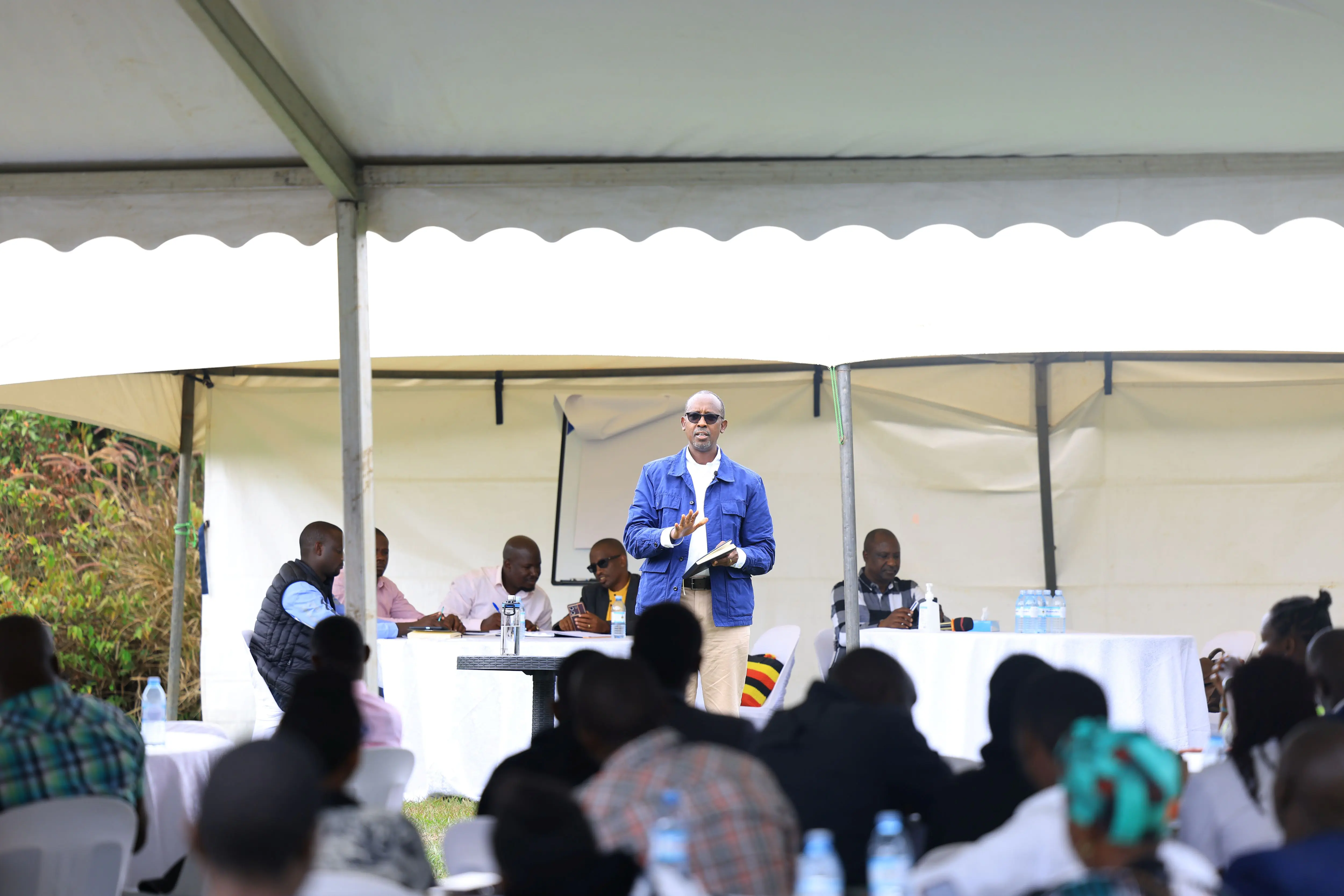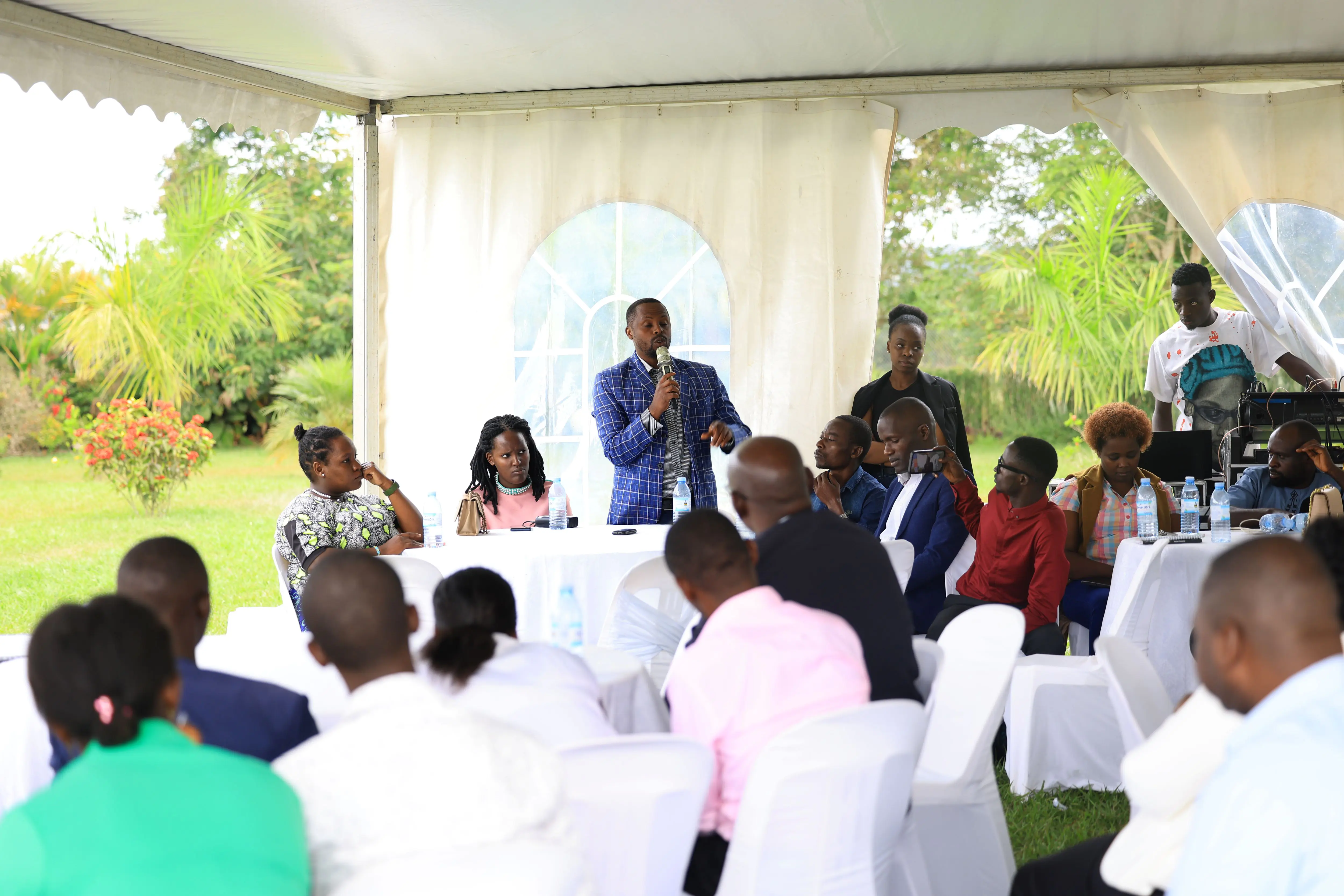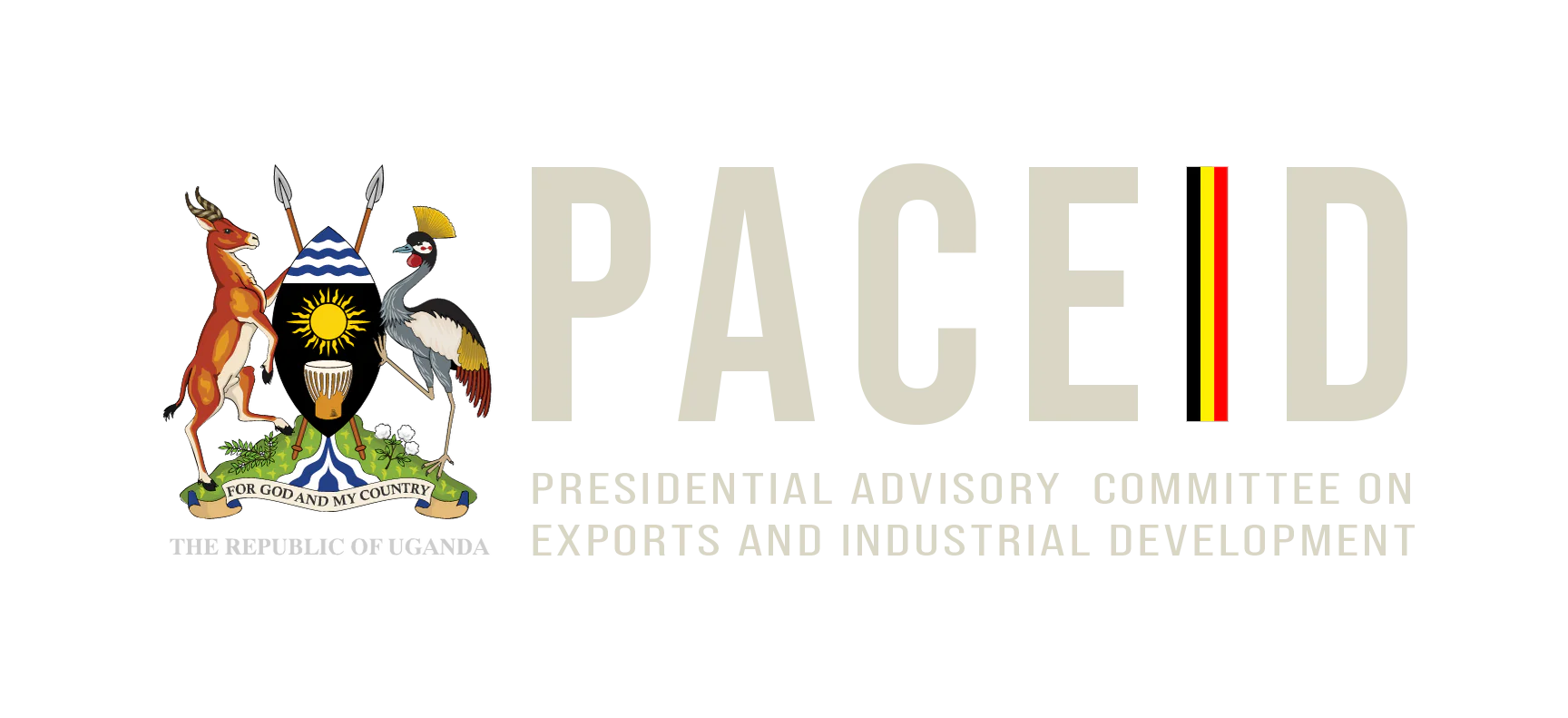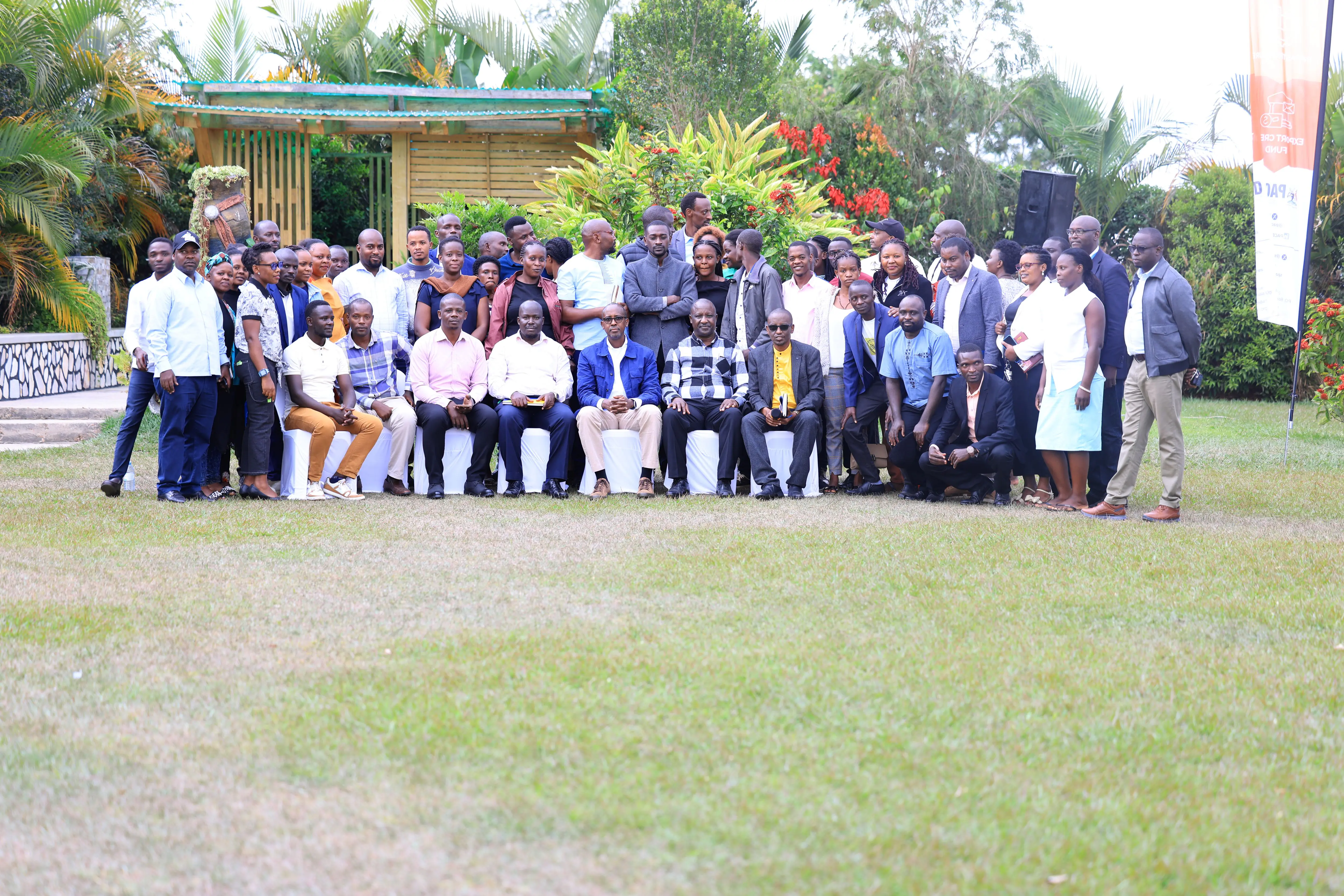The Presidential Advisory Committee on Exports and Industrial Development (PACEID) has called on journalists in Western Uganda to play a central role in advancing the country’s export agenda. This was during an engagement in Mbarara at Kamu Farm Country Resort that brought together editors and reporters from across the Greater Ankole sub-region.
PACEID Chairman, Odrek Rwabwogo, emphasized the importance of the media as a pillar of Uganda’s economic future, describing journalists as vital interpreters of information. “To grow a country economically and socially, you need interpreters of information. And those are journalists. That is why you are an important pillar,” Rwabwogo said.

Odrek Rwabwogo has emphasized the importance of the media as a pillar of Uganda’s economic future
He urged the media to understand and communicate Uganda’s journey by drawing lessons from the past. “We need to understand where Uganda came from to know where we want to head. Without knowing your history, lies are spread about you,” he added, making the case for a national collective ethic rooted in truth and unity.
Reaffirming PACEID’s mission, Rwabwogo stressed that the Committee’s mandate is solely focused on export growth, not politics. “Exports are the only oxygen of the economy, the rest is carbon dioxide,” he said, adding that PACEID envisions a Ugandan economy with a strong focus on exports.

Journalists had the opportunity to engage with the facilitators to better understand the goal of the gathering
Rwabwogo outlined the Committee’s four-pillar model of intervention; market access, standards and compliance, export infrastructure and export financing.
He also encouraged journalists to read widely, particularly biographies, to improve their perspective and professionalism. “Read more books. Learn from the journeys of others. Grow your thinking and voice as journalists,” he advised.

PACEID team with the founders of Kamu Farm Country Resort in Mbarara
The event aimed to build stronger ties between public policy institutions and the media, empowering journalists to tell impactful stories that drive national transformation. PACEID committed to supporting media professionals with data, access, and capacity building for more effective reporting on trade, value addition, and industrial growth.
Matthew Bagonza, Head of the PACEID Secretariat, urged journalists to remain grounded in the core values of their profession: accuracy, objectivity, transparency, and truthfulness. “Good journalism isn’t just about breaking news, it’s about helping a country make better decisions,” he said.

Matthew Bagonza with Fred Bamwiine speaking to the journalists during the event
Adding a practical dimension to the discussion, Fred Bamwiine, a successful zero-grazing farmer, appealed to the media to embrace a mindset of possibility and understand Uganda’s geopolitical landscape to better define their professional identity. “Know the geopolitics of Uganda. It helps you create your own niche as a journalist,” Bamwiine said.
He encouraged journalists to; stay focused and know where they’re heading, be clear and articulate about their goals, be consistent and coherent in storytelling, practice honesty and transparency, work hard, stay relevant to national needs and be patriotic by avoiding sensationalism in headlines that harm the country’s image globally.
The engagement reinforced the media’s place as the fourth estate, alongside the Executive, Judiciary, and Legislature, and a partner in shaping Uganda’s future.

Odrek Rwabwogo interacts with the journalists after the session
Rwabwogo concluded with a call for collective responsibility. “The task of building Uganda is not for government alone. It needs all of you, especially the storytellers , to shape a clear, honest and united national direction.”

